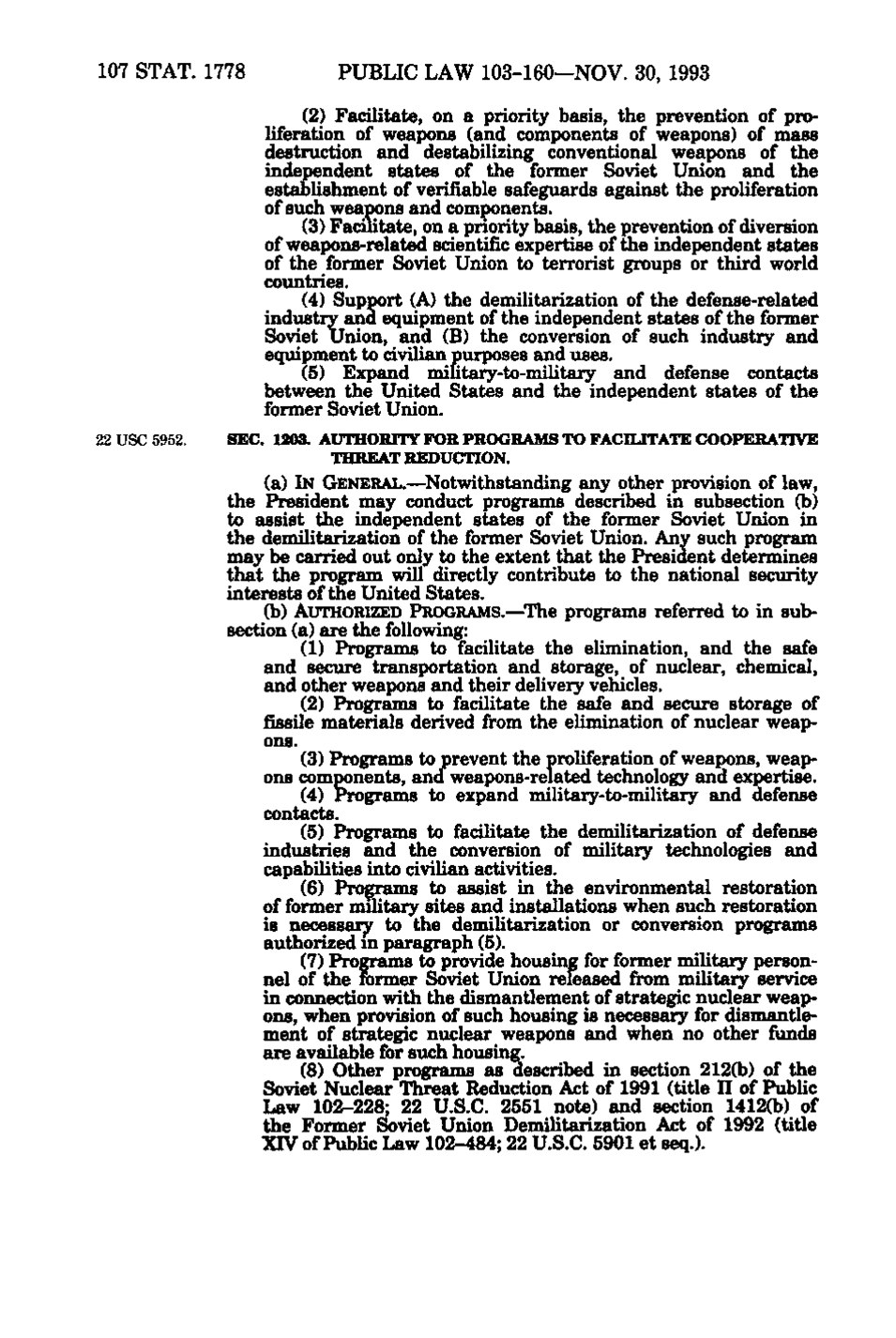107 STAT. 1778 PUBLIC LAW 103-160—NOV. 30, 1993 (2) Facilitate, on a priority basis, the prevention of proliferation of weapons (and components of weapons) of mass destruction and destabilizing conventional weapons of the independent states of the former Soviet Union and the establishment of verifiable safeguards against the proliferation of such weapons and components. (3) Facilitate, on a priority basis, the prevention of diversion of weapons-related scientific expertise of the independent states of the former Soviet Union to terrorist groups or third world countries. (4) Support (A) the demilitarization of the defense-related industry and equipment of the independent states of the former Soviet Union, and (B) the conversion of such industry and equipment to civilian purposes and uses. (5) Expand military-to-military and defense contacts between the United States and the independent states of the former Soviet Union. 22 USC 5952. SEC. 1203. AUTHOMTY FOR PROGRAMS TO FACHJTATE COOPERATIVE THREAT REDUCTION. (a) IN GENERAL. —Notwithstanding any other provision of law, the President may conduct programs described in subsection (b) to assist the independent states of the former Soviet Union in the demilitarization of the former Soviet Union. Any such program may be carried out only to the extent that the President determines that the program will directly contribute to the national security interests of the United States. (b) AUTHORIZED PROGRAMS. — The programs referred to in subsection (a) are the following: (1) Programs to facilitate the elimination, and the safe and secure transportation and storage, of nuclear, chemical, and other weapons and their delivery vehicles. (2) Programs to facilitate the safe and secure storage of fissile materials derived from the elimination of nuclear weapons. ^ (3) Programs to prevent the proliferation of weapons, weapons components, and weapons-related technology and expertise. (4) Programs to expand military-to-military and defense contacts. (5) Programs to facilitate the demilitarization of defense industries and the conversion of military technologies and • capabilities into civilian activities. (6) Programs to assist in the environmental restoration of former military sites and installations when such restoration is necessary to the demilitarization or conversion programs authorized in paragraph (5). (7) Programs to provide housing for former military personnel of the former Soviet Union released from military service in connection with the dismantlement of strategic nuclear weapons, when provision of such housing is necessary for dismantlement of strategic nuclear weapons and when no other funds are available for such housing. (8) Other programs as described in section 212(b) of the Soviet Nuclear Threat Reduction Act of 1991 (title II of Public Law 102-228; 22 U.S.C. 2551 note) and section 1412(b) of the Former Soviet Union Demilitarization Act of 1992 (title XIV of Public Law 102-484; 22 U.S.C. 5901 et seq.).
�
